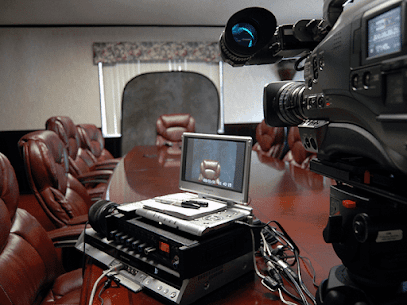Understanding the Four Types of Depositions: A Comprehensive Guide
As legal professionals, whether we are attorneys, paralegals, or court reporters such as those at Sarasota Court Reporters, we understand the paramount importance of depositions in the discovery process. “Types of depositions” are a key facet of building a robust case for trial. However, it’s crucial to note that all depositions are not the same.
In fact, there are four primary “types of depositions”: pretrial depositions, remote depositions, in-person depositions, deposition on written questions, and hybrid depositions. Understanding these differences can help you better prepare for your case, leading to more effective strategies and increased chances of success.
Discovery Depositions
Let’s start with discovery depositions, a common type of “pretrial deposition”. This deposition type is used to gather information from witnesses and parties involved in a case. Typically, discovery depositions are taken early in the discovery process, before trial, with the primary goal of obtaining information that can be used to build a case strategy.
During a discovery deposition, the attorney will ask questions related to the case, such as the witness’s knowledge of the events in question, their relationship to the parties involved, and any relevant facts or evidence. Sarasota Court Reporters, for instance, have vast experience in capturing these depositions accurately and comprehensively, ensuring the preservation of every detail for the case.
Expert Depositions
Next, we have expert depositions. These are specifically used to gather information from an expert witness, individuals who possess specialized knowledge or training in a particular field such as medicine, engineering, or finance. Expert depositions are typically taken to establish the credibility of an expert witness and to secure their opinion on a specific issue.
During an expert deposition, the attorney will ask questions related to the expert’s qualifications, their opinion on the case, and any relevant facts or evidence. The court reporters at Sarasota Court Reporters have extensive experience transcribing these expert depositions, capturing every detail with precision.
Trial Depositions
A trial deposition is a unique type of “in-person deposition” that is taken during the trial itself. The primary use of a trial deposition is to preserve the testimony of a witness who is unable to appear in court. This may occur when a witness is unable to attend the trial due to illness, death, or other reasons.
The goal of a trial deposition is to ensure that the witness’s testimony can be used as evidence in the trial. This is where court reporting services like Sarasota Court Reporters play a critical role in ensuring every word of the witness’s testimony is accurately recorded and transcribed for the court record.
Deposition Upon Written Questions
Finally, there’s the “deposition upon written questions”, a deposition type that is conducted in writing. This method is typically employed when a witness is unable to appear in person, or when conducting an oral deposition is impractical. During a “deposition on written questions”, the attorney will submit a list of written questions to the witness, who will then provide written answers.
The primary goal of a deposition upon written questions is to obtain information that can be used to build a case strategy. Here too, Sarasota Court Reporters can provide invaluable support, transcribing the written answers into a formal deposition transcript.
In conclusion, understanding the different “types of depositions” is crucial for legal professionals. Each type of deposition serves a specific purpose and requires a different approach. By understanding the goals and strategies associated with each type of deposition, you can better prepare for your case.
If you need assistance with “remote depositions“, “hybrid depositions” or other legal services, do not hesitate to contact us at Sarasota Court Reporters. Our team of highly skilled court reporters are well-equipped to help you with any deposition needs you might have, whether remote, hybrid, or in-person. Leveraging our extensive experience and advanced technology, we ensure that your proceedings are accurately recorded, transcribed, and handled with the utmost professionalism. Don’t let geographical barriers hinder your legal proceedings. At Sarasota Court Reporters, we bring the deposition to you, no matter where you are. So why wait? Take the first step towards a smooth, efficient deposition process. Reach out to us today at Sarasota Court Reporters for top-tier legal support services.
There are four main types of depositions in modern law practice:
- Deposition on Written Questions: In this type of deposition, a party to the case submits written questions to a witness that can be answered within a given timeframe. All questioning – direct, cross, redirect, and recross – is done via written questions served on all parties. An authorized deposition officer (usually a court reporter) reads the questions to the witness and then records the answer. While this type of deposition can be useful when other types of deposition are cost-prohibitive or when witnesses are unavailable, it is generally seen as a less effective alternative since litigators cannot observe the witness and make judgments about their credibility at trial1.
- In-Person Depositions: This is the traditional pretrial discovery deposition and is a transcribed question-and-answer proceeding that simulates live testimony in a courtroom. In this type of deposition, all participants are present in the same location. In-person depositions are typically conducted in the office of the attorney who noticed the deposition, or in an office facility established by court reporting services specifically for conducting in-person depositions. In-person depositions are often favored by litigation specialists for the insights they offer about the opposing party’s case and the witness’s potential performance at trial1.
Remote Depositions: A remote deposition is conducted via communications technology, and all participants – including witnesses, lawyers, court reporters, videographers, and interpreters – are located in different geographic locations. Remote depositions have become more common due to advances in technology, cost-effectiveness, case-management efficiencies, and a judicial preference for remote means to reduce case backlogs. They are identical to in-person

